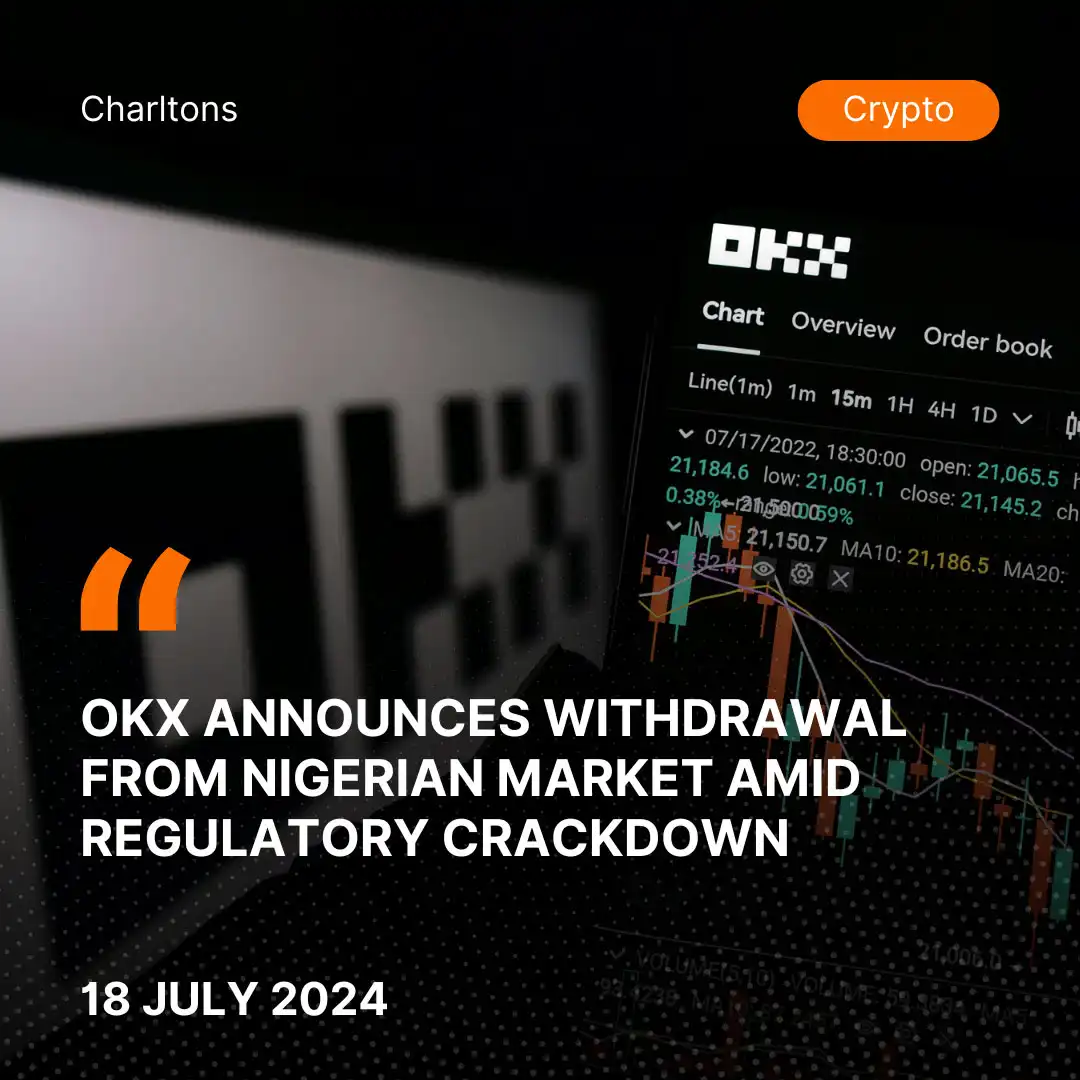
Cryptocurrency exchange OKX has informed its Nigerian clients that they have until 16 August 2024 to close their positions as the exchange ceases operations in the African country due to local regulatory challenges. The announcement came in an emailed statement dated 17 July 2024, which was obtained by CryptoSlate.
OKX stated that starting 16 August, users will no longer be able to open new positions or use services on the platform, except for withdrawals and closing existing positions. The exchange assured users that their funds remain safe and accessible but must be withdrawn by 30 August 2024. After this date, users will need to contact customer support to take any further action on their accounts.
This decision has sparked concern among Nigerian cryptocurrency users, who voiced their displeasure on social media platform X. In response, OKXHelpDesk explained that the platform cannot provide KYC (know your customer) services to Nigerian users, adding: “Any updates regarding licensing will be shared on our official channels. Stay connected with us for any future announcements on this matter, thank you!”
This move follows OKX’s earlier decision in May to withdraw its peer-to-peer services for Nigerian users and remove the local fiat currency, the Nigerian naira (NGN), from its platform.
OKX’s exit is the latest in a series of regulatory hurdles faced by cryptocurrency exchanges in Nigeria. Earlier this month, KuCoin notified its Nigerian users of a 7.5% Value Added Tax (VAT) on all transactions, citing an update to regulations in Nigeria as the reason for the change. Furthermore, Binance is currently facing legal action from Nigerian authorities for money laundering and tax evasion, with one of its executives, Tigran Gambaryan, being held at the Kuje Correctional Center in Abuja despite deteriorating health and growing international calls for his release.
Nigeria’s stance towards cryptocurrency entities has been increasingly stringent. The Nigerian government has ramped up its crackdown on crypto trading services, linking these activities with a decline in the local currency. This regulatory scrutiny has led to significant challenges for crypto firms operating in the country, including bans on prominent exchanges like Binance and Coinbase.
The hurdles faced by crypto entities in Nigeria are multifaceted. Companies must navigate a complex regulatory environment that includes high taxation, stringent KYC requirements, and an overall hostile stance towards digital currencies. These factors contribute to an uncertain business climate, making it difficult for crypto exchanges to operate smoothly and maintain compliance with local laws.
The exit of OKX from the Nigerian market underscores the broader challenges faced by cryptocurrency firms in navigating regulatory landscapes. While regulatory bodies aim to protect consumers and maintain economic stability, the stringent measures can stifle innovation and limit access to global financial systems for local users. As the crypto industry continues to evolve, finding a balance between regulation and innovation remains a critical challenge for both regulators and industry participants.





